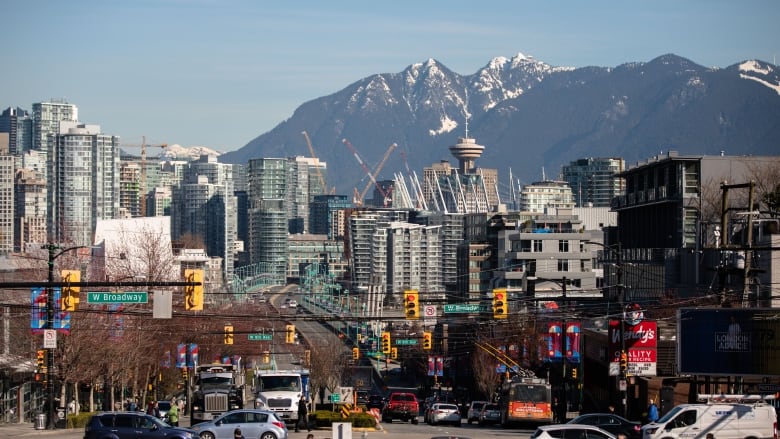Vancouver city council approves land-use strategy, including plans for housing, transportation, child care
Mayor Kennedy Stewart says plan will make neighbourhoods 'more affordable, equitable and vibrant'

Vancouver city council has approved a land-use strategy aimed at reshaping the city to become more "equitable, livable, affordable and resilient'' in the years to come.
In a statement, the city saidthe Vancouver Plan represents "a new way for the city to grow," creating more housing options across all neighbourhoods while expanding social housing, transportation options and other infrastructure as well.
Theresa O'Donnell, general manger of planning, urban design and sustainability, says it's the first time in Vancouver's history that the city has a "comprehensive direction'' for future growth, one that's co-ordinated with other levels of government.
The next step will be for council to approve motions directing staff to decide how renter protections and developer contributionsfit into the plan's implementation.
Vision for the future
Mayor Kennedy Stewart says it marks a new path forward for the future of Vancouver, "guided by the promise of making every neighbourhood more affordable, equitable and vibrant for everyone.''
"We're a city of renters, and all of us deserve the opportunity to live a great life in any neighbourhood,'' Stewart said on Friday.
"The Vancouver Plan will expand housing choice and create new opportunities in parts of the city that have been largely off limits today all without displacing long-time renters.''

O'Donnell says Vancouver will be home to about 260,000 more people withup to 210,000 more jobs by 2050, and the new strategy allows the city to plan for the future.
The plan outlines the city's vision in 11 policy areas: housing; economy; climate; ecology; transportation; child care; community infrastructure; arts, culture and heritage; public spaces; watersheds and water resources; and food systems.
The new land-use strategy will direct new housing choices toward low-density neighbourhoods that are "rich in amenities,'' while alsoadding amenities and services in areas that are currently underserved.
The city plans to significantly boostthe supply of social and supportive housing and support Indigenous-led housing and wellness projects.
It has also come up with a framework to protect green space and tree canopies, and restore ecosystems, while creating "an integrated network of public spaces, ecological corridors'' and green ways for active transportation.
It says the goal is for 76 per cent of Vancouver residents to live within a five-minute walk of shops and services, up from the current 58 per cent.
Other goals include the expansion of infrastructure and services ranging from rapid transit hubs to affordable child-care spaces to public washrooms across the city.
The plan was developed over two and a half years, and the city says there was extensive public engagement, technical analysis and stakeholder input.












_(720p).jpg)


 OFFICIAL HD MUSIC VIDEO.jpg)
.jpg)



























































































